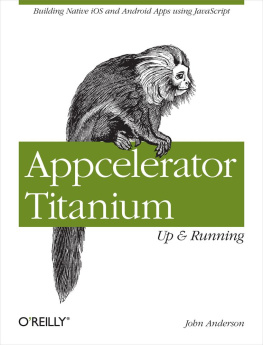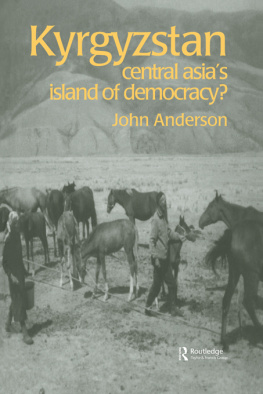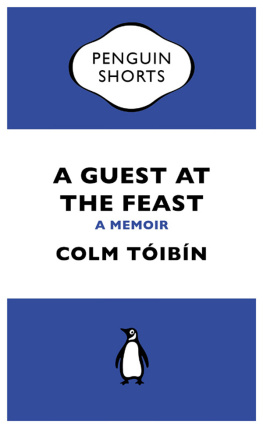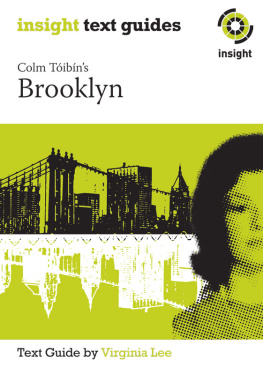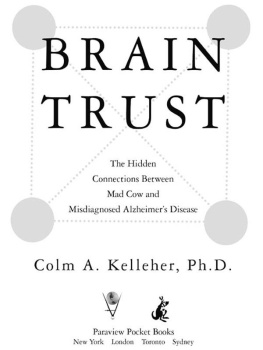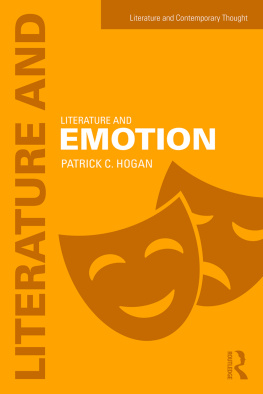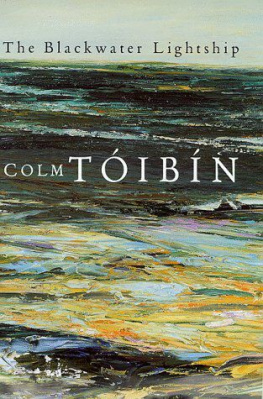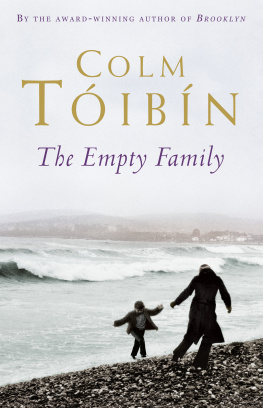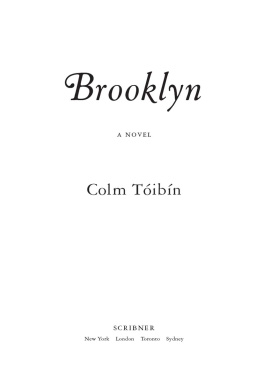
The Dungeoneers
by John David Anderson
Give a man a fish, and he will eat for a day.
Teach him to fish, and he will eat for a lifetime.
Teach him to steal, though, and he wont have to eat fish every day for the rest of his life.
Darrius Snowthorn, The Rogues Encyclopedia, Volume One
In memory of Niru Shah, an adventurer, hero, and rogue
who taught us all what to treasure most
Colm Candorly had nine fingers and eight sisters. He was born short the finger and quickly learned to make do without it. He would trade five more of them and the better portion of his toes for a moment of peace and quiet.
They came in bunches, the girls, as if they couldnt bear to be alone, even for a moment. Triplets first, then a set of twins bracketing each side of the Candorlys only boy, and finally the baby, Elmira. Mrs. Candorly insisted little Elm would be the last, but Mina Candorly was an indisputably healthy woman with biceps the size of house bricks and hips the width of an oxcart, who loved her husband very much and her children even more, so no one was holding their breath. Least of all Colm.
Except when they made him. Hold his breath, that is. The sisters, that is pinning him down near the meadows outside the Candorly farm and thrusting handfuls of pollen-packed posies into his face until he turned red and blew snot all over himself. It was their idea of torture.
They do it because they love you, his mother would say. Youre their little brother.
Which was true for the five older ones, but not for the three who came after. They treated Colm like a child despite the fact that he was twelve already and taller than most of them (save the triplets, who were well into their teens). Only baby Elmira deigned to leave him alone, though she was nearly walking already and would soon join her sisters in their daily persecution of the only boy in the house. Already they used her to trick him, making her cry by pinching her legs so that he would come check on her, and then cornering him so they could braid his hair. Colm had learned to keep it cut short. A flop of wheat-colored locks trimmed close by his mothers only shears, hard to stick a ribbon in.
Dont complain to me, Colms father would tell him. You only have to live with them. Try raising them. They are more cunning than wolves.
Some days, Colm would have preferred the wolves.
It was a daily gauntlet he was forced to run the cutesy names and the rolling eyes, the stealing of his underwear (he once found it hanging on the fence for the whole village of Felhaven to see), the incessant giggling about nothing funny at all. Girls were like that, he discovered. Colm spent most of his time in hiding, lurking in shadows, escaping into the nearby woods, always planning for his next escape. Tiptoeing through the back door. Hiding in the cupboard, scrunching his body and wedging beneath the usually empty shelves. Covering himself in leaves as a disguise and holding his breath as the gaggle of Candorly girls traipsed by. He could count on both hands the number of times they locked him in the cellar (fewer than ten, at least), until he taught himself to pick the lock using a hairpin that he kept hidden beneath the stairs.
Not that he was completely innocent. He teased them mercilessly at the table, where the presence of parents kept their retribution in check. He had learned to pilfer small items from his sisters dressers and the secret wooden boxes they stashed under their beds. He had even learned to steal the pins and combs right out of their hair. He used these little treasures as collateral, wards against future torture. Let me go and I will give you back your brush. Give me back my pants or you will never see your rag doll again. He loved them, of course; they were his sisters, and the torment was just their idea of affection and family bonding, but it still taught him a few tricks in the arts of subterfuge and avoidance. With so many sisters, it was simply a matter of survival.
For Colms parents, the challenge was of a different sort. Feeding a family of eleven on a shoe cobblers salary required the most precarious balancing of coin. Rove Candorly, Colms beefy, rough-skinned father, was an industrious man, handy with nail and awl, well respected by the villagers of Felhaven and many of the neighboring villages besides. Everyone in a twenty-mile reach enjoyed the comfort of a well-stitched sole, and the wax candles beside Rove Candorlys workbench always seemed burned to the nub from long hours he spent huddled over split heels and busted boot toes.
But it wasnt always enough, and the Candorly children, from Carmen down to little Elm, made do with what little they got. Each of the girls had precisely two outfits though a shared skinniness not inherited from either parent allowed for trading between them. The rooms were cramped, the triplets commanding one, both sets of twins sharing another, and the baby cribbed alongside her parents. Only Colm had his own room the benefits of being an unmarried man, his father told him though it was little more than a closet, with just enough space for a hammock, a shelf, and a trunk. He had a window, at least, that he would often stare out of for hours. And his boots were in top-notch shape.
Still, for all of their wanting, the Candorlys found contentment. Mina Candorly and her capable daughters tended to the small garden and doted over the chickens and twin cows (most everything Candorly came out in twos or more). The older girls brought in extra coin through stitchcraft, and Cally, the fourth oldest (or fifth depending on how you looked at it) had discovered a hidden talent for baking, often spending the whole day in the kitchen whipping up concoctions to sell down on the square. Even Celia, the second to arrive of the second set of twins, did her best to keep the Candorly spirit up, though her mischievous smile and infectious laugh did little to fill the larder.
For his part, Colm helped his father when able. The hope was that someday soon Colm would apprentice with his father, and then would be able to take over the family cobbling business when Rove Candorly was no longer able. Colm was certainly nimble fingered enough for the cobblers trade, lithe and lanky like his sisters, adept at picking up and tinkering with small objects. Colm was obviously cut out for finer work than farming or blacksmithing; his frame and mind-set called for something requiring concentration and dexterity. The problem was, he had absolutely no interest in shoes. He would stand at his fathers workbench thinking only of the nasty, noxious, boil-crusted feet that the shoes were pried off from, and his stomach would churn. Colms father had lost his sense of smell long ago.
Yet Colm knew he shouldnt complain. His parents were doing their best. There were many nights when he would sit and listen to them pooling the familys earnings, counting coin by coin. Often necessities turned into luxuries. Some nights Celia would sneak into his room and the two of them would eavesdrop, cheeks pressed to the wood door, eyes on each other, listening to the clink of copper on copper, followed by his fathers gruff resignation.
I think we might have to do without sugar this week, Rove Candorly said one night after theyd sent Colm and the girls to bed and Celia had tiptoed down the hall into Colms closeted space.
Cally will be disappointed, Mina Candorly replied. I suppose we can send the girls to gather honey, though you know how Celia feels about bees.
It was the same conversation as the week before, except then, instead of sugar, it was soap. And butter the week before that. There was always something they wanted and couldnt have. Beside him, Colms sister shuddered. Her nearly strawberry-colored hair fell down the back of her nightgown, chaotically curled. During the day she always wore it up, bundled and tacked into place with her favorite silver butterfly pin, the only thing she owned of any real value. Celia was a firebrand, with a temper that didnt seem to come from either side of the family, and she was often the one found stranded in a tree that she was skilled enough to climb into but not out of, or torturing the chickens by chasing after them. She was once caught putting rotten eggs in the toes of everyones shoes. Of all his sisters, Colm liked Celia best.
Next page


